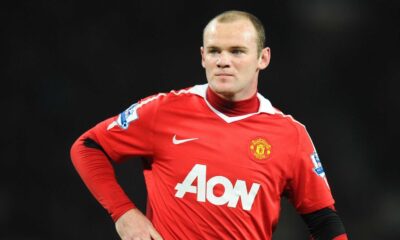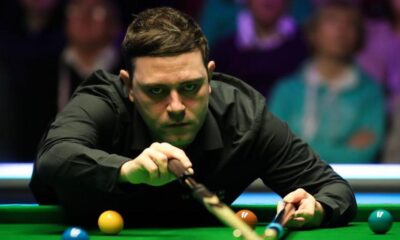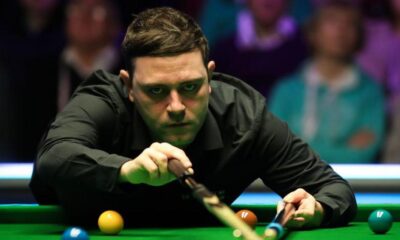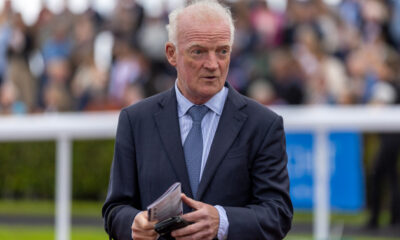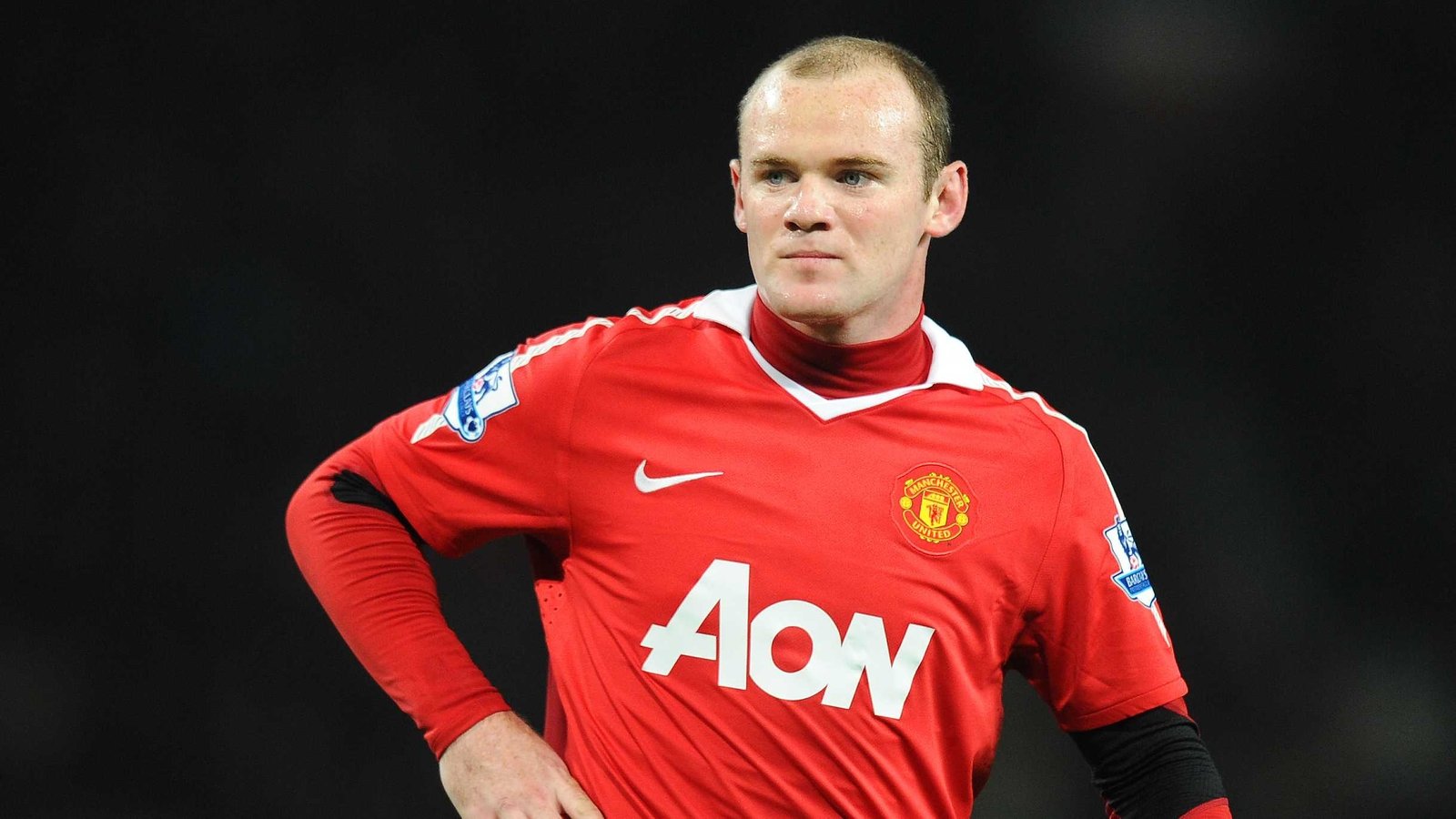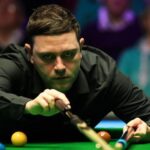THERE IS NO week longer than that of the Ryder Cup, where the world’s media assemble and spend four days doing their best to simply keep on talking until the action starts.
Amid this epic quest to find a new way of saying the same thing, a presenter on the Golf Channel yesterday teed up a discussion on the continuity of Europe’s team selection by looking down the camera and saying that Luke Donald’s team are genetically the same as they were in Rome two years ago.
That’s, er, one way of putting it.
Eleven of Donald’s 12 players are the same, with Rasmus Hojgaard swapped in for his identical twin brother Nicolai. Beyond that, Donald has obviously remained in situ as captain, and many of his vice-captains have returned, too. This mass continuity is a deliberate European ploy to end their long winless streak away from home: their stats guru Eduardo Molinari recommended a tweak to their points system so as to better ensure a return for those who were victorious in Rome.
The European thesis: it’s hard enough to win away from home as it is, so why further complicate things with a new captain and untested pairings?
Their continuity has allowed them do away with these preliminary worries and focus on upsetting precedent. Theirs was the last away Ryder Cup win – Medinah 2012 – and while the US remain favourites to win this week, Europe’s familiarity has helped to narrow the gap of bookies’ expectations.
Where Rasmus Hojgaard is Europe’s sole Ryder Cup rookie, for instance, the US have four of them: Cameron Young, Ben Griffin, JJ Spaun, and Russell Henley.
The European motto this week is “Excelsior”, and is stitched into each player’s bag. It is the motto of New York State and means “ever upward”, and so implies a sense of continuity.
If Donald sticks with his pairings from Rome, then Rory McIlroy will play foursomes with Tommy Fleetwood, while Shane Lowry will team up with Sepp Straka. The LIV duo of Jon Rahm and Tyrrell Hatton are a lock to play together again, while Viktor Hovland and Ludvig Aberg will likely reprise their partnership. Justin Rose was last time tasked with steering the rookie Robert MacIntyre around the course, but the Scot may have graduated to lead a pairing on his own and allow Rasmus be chivvied along by Rose.
Alternate shot foursomes is the format in which pairings are most important, and thus where familiarity is likely to be most rewarded. On a tangible level, a pairing has to decide whose golf ball to use on each hole. The importance of familiarity with one another’s equipment is reflected in the fact that the Americans have been cramming on this aspect, with Bryson DeChambeau reportedly playing with Justin Thomas’ ball at home in the past couple of weeks. The Europeans have much of this work done already.
Friday’s Foursomes are the event’s bellweather. Since Medinah, the winner of the first set of foursomes has gone on to win the Cup. They haven’t been remotely close: Europe took the first foresome session 3-1 en route to victory in 2014, and then swept the session 4-0 in both Paris and Rome. The US, meanwhile, have won the Cup twice since Medinah, across which they won the first foursome session 4-0 and 3-1 respectively.
Hence Europe know their task on Friday morning: make a fast start and at least split the points on offer in the first foursomes session. To that end, they won’t be wasting the early holes getting to know one another.
Bethpage is a monstrous course and with the rough shaved down, it favours long hitters. The good news for Europe is that, while they lose on their overall average driving compared to the Americans, in McIlroy, Rahm, Aberg and Hojgaard, they have four of the five longest hitters across either squad this week.
They’ll have the firepower to hang tough in the majority of foursome matches.
Though Europe’s players are broadly the same from two years ago, their form lines are not.
To start with the good news, McIlroy, Lowry, Fleetwood, MacIntyre, Rose, and Hatton are all in a better place. Two years ago, for instance, McIlroy ranked 60th in the putting stats on the PGA Tour, whereas this year he is fifth. In 2023, Lowry was 26th in the ball-striking rankings, and now he’s fourth.
Aberg, meanwhile, has garnered experience, though not all of it positive. Matt Fitzpatrick has sparked into form in recent months but has fallen a a long way from his peak at the halfway point of the 2021-23 Ryder Cup cycle, while a couple of years ago, Rahm and Hovland each had a claim to be the most in-form golfer in the world. While they have each shown fits of form this year, they are not at the level they were in Rome. Straka, meanwhile, has played very little golf lately having taken time off for family reasons.
McIlroy, Rahm, and Hovland won 10.5 points between them in Rome, but it’s difficult to see a repeat haul from Europe’s big three this time around. They must hope that what they have lost with Hovland’s downturn can be salvaged by the improved form and quality of others.
If Europe can win this week, expect this level of continuity to become part of their template for the future, and captain’s stints to be stretched to four years.
From the perspective of this yawning week of preamble, Europe have set themselves up very well for a tilt at what McIlroy calls the hardest feat in golf.



